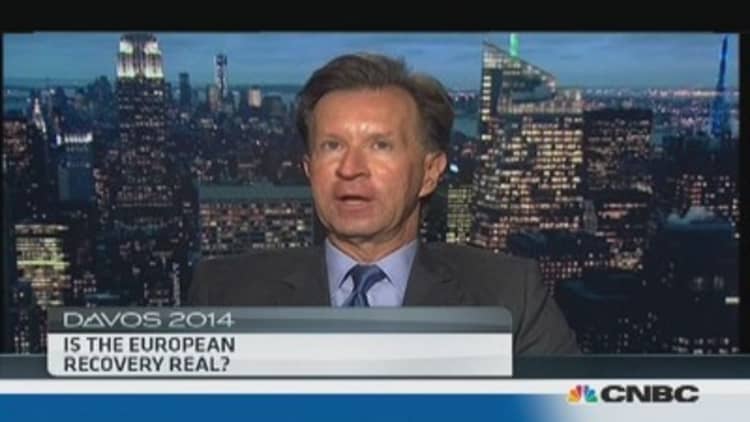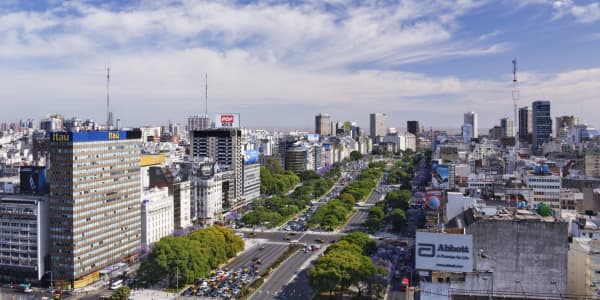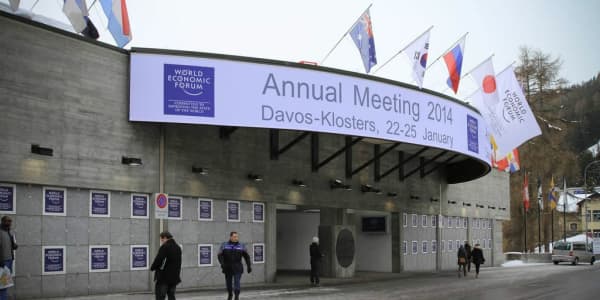With the global economy slowly getting back on its feet, 2,500 delegates gathered in Davos face a vexing question this week: How to spread the wealth.
As much as any other issue income inequality will tax world leaders in the years ahead.
Aggressive policies from central banks have helped stem the liquidity drain that sent the U.S., Europe, and other countries reeling in the latter part of the last decade. Wall Street banks have come back to life, equity markets have soared and even debt-laden countries like Ireland and Greece are finding their way back into the capital markets.
But the main problem now will be those left behind.
"The kind of people over there (in Davos), other than the professors, are making a great deal of money more than their predecessors were a generation ago," University of Maryland economist Peter Morici said in an interview. "This is a growing embarrassment. The differences in income between Wall Street and the rest of America are astronomical."
(Read more: World's richest have same wealth as 3.5 billion poorest)
Dangers surrounding income inequality are not lost on those attending the World Economic Forum.

In a survey of members, the issue ranked near the top among global economic concerns.
"It raises concerns about the Great Recession and the squeezing effect it had on the middle classes in developed economies, while globalization has brought about a polarization of incomes in emerging and developing economies," the forum said in a statement. "This is true despite the obvious progress in countries such as Brazil and lower levels of poverty in several developing countries in Asia and Africa."
The negative effects of globalization will be especially problematic this week for its advocates, particularly President Barack Obama, for whom one of the key platform tenets in the 2008 election was a pledge to redistribute income.
(Read more: Davos suffers from headline headaches)
"In the United Stated, people in the middle and bottom are shrinking and people on the top are rising. That's not what globalization was supposed to do for them," Morici said. "For President Obama, it's very troubling because he's been a big advocate for globalization."
Recent studies have shown American wealth disparity at its highest level since the Great Depression.

Unemployment in the U.S. has been vexing as well. While the headline rate has dropped to 6.7 percent, that's come as the labor force participation rate has hit a 36-year low.
In Europe, youth unemployment in some areas is around 50 percent and about 12 percent overall in the euro zone.
(Read more: The rich and famous visit Davos)
Concerns over inequality "should act as a wake-up call" to Davos attendees, Philip Jennings, general secretary of the labor group UNI Global Union, told media members last week.
Morici, however, said he doesn't expect much to come it, at least at the four-day World Economic Forum.
"This is the biggest problem of our time," said. "We need to have more balanced growth across the globe."
—By CNBC's Jeff Cox





